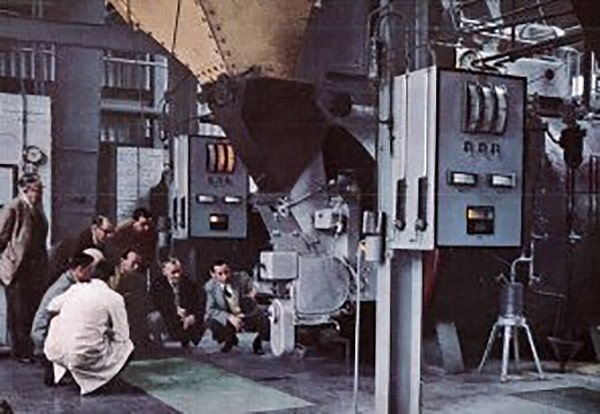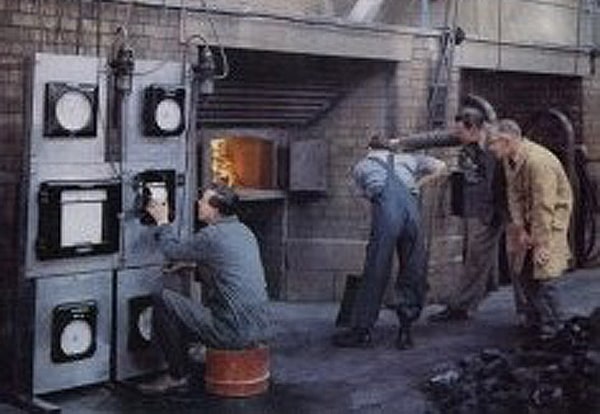Since then, we have continually grown, evolving to meet the rapidly changing needs of our clients.
We offer strategic, technical and business consultancy services to clients across all sectors both public and private, we also work alongside other professionals providing specialist advice and design consultancy. The background to our appointments varies; the main drivers are to improve the performance and efficiency of buildings and assets, ensure compliance with statutory regulations and to design the services for sustainable and safe buildings and infrastructure.
To support our client’s in managing their properties and estates.
NIFES undertake the duties relating to Property Appraisals, Building Stock Condition Surveys, Dilapidation Surveys, Legislative and Regulatory Compliance Surveys and Audits, including Fire Risk Assessments, DDA Surveys Legionella Risk Assessments, Electricity at Work and Health and safety advice.
For investment projects, whether it is to support back-log, replace old plant, general improvements or for energy efficiency reasons, NIFES carry out feasibility studies showing options, costs and the potential benefits and savings as well as providing business cases and justification reports.
For NIFES clients who are looking to save money, energy and carbon, NIFES undertake Energy Audits and Surveys, Strategies and Policies, Environmental Audits, Emissions Testing, Plant Efficiency Tests, Water Management Audits and deliver Energy Management and Boiler House Operation training courses.
Since then, we have continually grown, evolving to meet the rapidly changing needs of our clients.We offer strategic, technical and business consultancy services to clients across all sectors both public and private, we also work alongside other professionals providing specialist advice and design consultancy. The background to our appointments varies; the main drivers are to improve the performance and efficiency of buildings and assets, ensure compliance with statutory regulations and to design the services for sustainable and safe buildings and infrastructure.
NIFES, early days, staff & vehicles, Oxford Road, Manchester, 1955
NIFES Fuel Oil Firing Course, Reading, 1960 – Back in the seminar room
How it all began
The fuel economy of Great Britain changed dramatically between the 1930’s and 1940’s. The surfeit of domestic production in the 1930’s became a serious deficiency by the late 1940’s and long range economic forecasts indicated that this situation was likely to not only persist but to worsen.
The Committee on National Policy for the use of fuel and Power Resources (the Ridley Committee) concluded that much could be done to reduce the deficit by eliminating waste, and recommended that:
“The Ministry of Fuel and Power should invite industry to set up an organisation to provide a greatly increased fuel efficiency advisory service for Industry, and
The Ministry’s Fuel Efficiency Service should be retained in its present form and should continue to give advice on fuel efficiency to industry (paragraph 295 (19) and (20).”
Then…
In the debate on the Ridley Report, in the House of Commons on 28th October 1952, the Minister said that he thought it impracticable for two organisations to work, side by side, on fuel efficiency, and preferred the proposal that industry should set up its own service. He then invited a Committee, of which Sir Harry Pilkington was the Chairman, to work out a scheme for bringing this industrial fuel efficiency service into being.
The Pilkington Committee reported at the end of March 1953. Its main recommendations, which were accepted by the Government, were that:
“An industrial organisation should be set up which should aim at the provision of fuel efficiency advisory services on a scale at least comparable to that provided by the Ministry of Fuel and Power, expanding thereafter at a rate consistent with the supply of suitably qualified staff, and the extent to which the demand for such services can be stimulated;
the British Productivity Council should be invited to sponsor the organisation in the form of an independent non-profit making Company.”
NIFES Fuel Oil Firing Course, Reading, 1960 – A practical demonstration
A group of NIFES engineers at Wantage Hall, Reading University 1955
NIFES experienced and qualified engineers provide design services covering all aspects of building engineering services as well as electrical and mechanical infrastructure projects and renewable technologies.
This flexible service covers all technical, contractual and commercial project support as required as well as general project management. NIFES employ professionals of the highest standard, particularly relying on time served individuals whose experience is invaluable in providing an accurate and value for money service for our clients. We are well known for supporting other professionals in the industry and are relied upon for our advice including the services of expert witness covering specific particularly complex technologies.
NIFES uses modern techniques to support our work including up to date CAD services and modelling software. We also provide instrumentation services to measure site activity including emissions monitoring, efficiency monitoring, electrical and mechanical load profiling to name just a few.
NIFES technical pedigree and culture goes back many years, below is the background to NIFES and how it all began.

Checking combustion efficiency
The British Productivity Council accepted the invitation of the Minister to arrange for the setting-up of the new organisation.
They nominated as original members those who had agreed to serve on the Board of Directors. These members signed the memorandum of Association on the 1st December 1953, and the National Industrial Fuel Efficiency Service was incorporated on the following day, under the Companies’ Act 1948, as a company limited by guarantee. By licence of the Board of Trade the Company was registered with limited liability without the addition of the word “limited” to its name.
Even before the formation of the Company, Mr Geoffrey Lloyd, the Minister of Fuel and Power, had obtained the co-operation of the National Coal Board, the Gas Council and the British Electricity Authority. The National Coal Board agreed to provide an income of £250,000 a year for an initial period of five years, while the Gas Council and the British Electricity Authority each agreed to provide £100,000 a year for the same period.
The oil industry did not participate in the setting up of the National Industrial Fuel Efficiency Service and did not subscribe to its funds. But, when it became apparent that, with the increasing consumption of fuel oil for industrial and commercial purposes, a substantial part of the work of the Service would be devoted to advising consumers of fuel oil, certain leaders of the industry were approached for advice as to how their companies might become associated with work of NIFES.

NIFES Practical hands on training
These recommendations were made on the assumption that there would be no duplication of the organisation’s functions by the Government.
The Committee also defined what, in their view, the general functions of the new Service should be:
“To provide and promote the provision of general advice to industry on efficiency and economy in the use of all forms of fuel, heat and power; to give practical help in securing the efficient and economical use of fuel and power to individual industrial fuel users and to such commercial and other fuel users (including Government Departments and public bodies) as are not catered for by Coal Utilisation Council’s activities in the domestic field. to make quantitative heat and power surveys for industrial fuel users; to work in co-operation with other interested Associations and bodies to promote the provision of advisory services; to promote research and development conducive to fuel efficiency; to engage in publicity to promote fuel efficiency and economy; to advise firms and local authorities on measures to abate the smoke nuisance through increased fuel efficiency; to promote the training and employment of fuel technologists and the training of boilerhouse personnel and supervisory staff at all levels.”
Call us on 0333 202 7388
For an informal chat about how we can help and what we can offer your business, please get in touch today.
